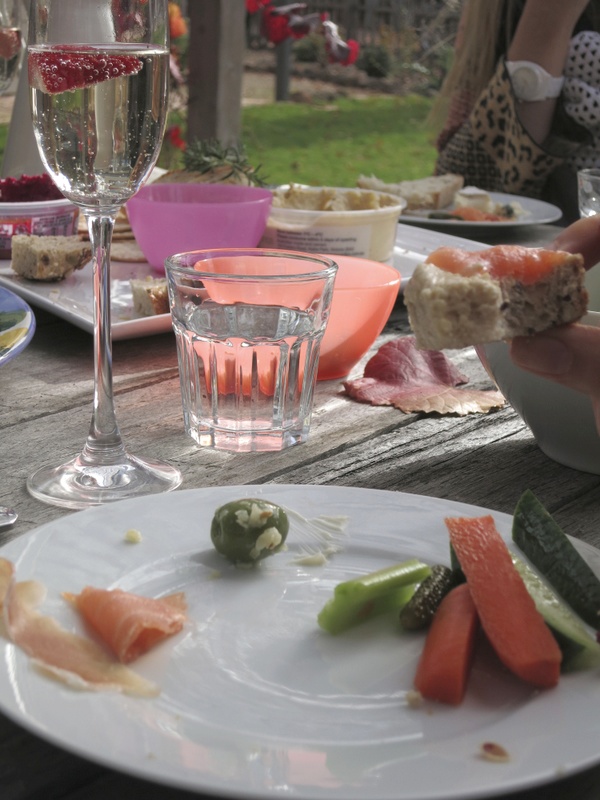For a year now I’ve been using this approach when working with clients. It’s wonderful.
While this approach doesn’t focus on weight at all, clients who I’ve worked with who have tried to lose weight without any long term success (eg. have been dieting, restricting certain foods or following plans on and off) are enjoying food more, have not cut out or restricted anything, are feeling better, are happier, are more at ease with their body and are healthier. They’re healthier and happier on many levels. Plus, some have also lost weight, not because it’s been intentional but because naturally their body is shifting to where it wants to be. They’ve experienced such a positive shift overall, have learnt skills and gained confidence to continue listening to their body and enjoy all the foods they love. They’re enjoying being active, no longer is it a chore. It’s so rewarding to see.
What is the non-diet approach?
The non-diet approach is a way of working with individuals to help them develop a healthy relationship with food and their bodies. During a consultation, we don’t focus on weight at all. The benefit of not focusing on weight, weight loss, or weight gain, is that you’re able to focus on your health and to eat to feel good and to nourish and look after your body. Not only does this give you the headspace to relax and enjoy food, but it also allows your body to find it’s natural healthy weight.
A big part of the non-diet approach is learning how to eat intuitively. This enables you to be aware of and respond to internal eating cues (hunger, fullness and the varying degrees of hunger and fullness, the pleasure and joy of food and the experience of eating) in an enjoyable and respectful way.
Your body has an innate ability to know when it needs food, what food it needs and how much it needs, at any given time. It’s pretty amazing when you think about it. However it’s easy for this skill to become clouded and for you to feel confused about what sort of food and how much is good for you. This is a feeling that is very common amongst those who have tried different diets, chopped and changed their way of eating or have tried restricting or cutting out certain foods.
We live in such a fast-paced world, and there is so much conflicting information out there. Plus, our world is incredibly image-focused and convenience food and diet crazy. These things certainly influence our eating habits.
It’s also easy to feel like the best way to feel better, be healthier or lose weight is to try what other people are doing, for example, trying a new diet or restricting certain foods. However our bodies are unique, there is no ‘one size fits all’ so to really feel good and become healthier in a sustainable and healthy way we need to do what’s best for our own body. And to do this we need to listen to our own body.
When we re-connect and become well in-tune with our body’s hunger and fullness signals, and also trust these signals, we can eat intuitively and mindfully. This is what the non-diet approach helps you to do.
It’s a nurturing approach that embraces flexibility, so it discourages typical dieting behaviours such as keeping detailed food diaries, rigid planning and timing of meals, regular weighing, specific energy intake, specific weight loss goals and the use of ‘diet’ or low-calorie foods. All foods are considered equal so it’s about finding a balance that’s enjoyable and healthy for you. It helps you to enjoy food and live a healthier life free of food worry, fear and guilt.
I believe that when we eat intuitively and mindfully, understand what our body needs and experience the joy of good food and cooking we are able to live healthier and happier lives. Good food is such a joy!
Here is a summary of what the ‘non-diet’ approach helps you to do:
- Learn to eat intuitively and mindfully – this means you learn to become well in-tune with your body’s cues (hunger and fullness, and varying degrees of hunger and fullness) and learn to trust your body’s cues so that you know what food your body needs and how much it needs, at any given time
- Learn to enjoyably satisfy your hunger and also feel good after meals
- Nurture a healthy relationship with food and your body, so that you can enjoy all the foods you love, feel at ease with all foods, and not feel guilty or fearful of certain foods
- Learn how to nourish your body it in a way that makes you feel physically and mentally good, looks after your health and provides you with all the nutrition you need
- Learn ways of shopping and cooking that will make food preparation easier and enjoyable for you
- Understand food cravings and respectfully and enjoyably satisfy them
- Understand how emotions, stress and tiredness can influence your eating and develop strategies to manage your emotions that suit you and are healthy, respectful and caring towards your body – together we address emotional and non-hungry eating so that it doesn’t become a concern anymore
- Learn to let go of what you think you should and shouldn’t eat, or what others say you should and shouldn’t eat, so that you have the headspace and energy to really learn and know what food is best for you
- Find ways of being active that you really enjoy, and integrate it into your lifestyle in a way that suits you
Areas where the non-diet approach is particularly helpful
I’ve found this approach to be particularly helpful for clients with weight concern, those who have tried diets with no success and those who don’t feel comfortable in their body. It helps them to firstly feel better in their body and understand their body’s unique needs to then improve their health in a kind, enjoyable and sustainable way. However, it’s also suitable and extremely helpful for individuals with other interests, concerns or health conditions. I help clients in the areas of:
- Eating to support and improve fertility
- Pregnancy health & wellbeing
- Postnatal health & wellbeing
- Nutrition for PCOS and endometriosis
- Irritable bowel syndrome and food intolerances
- Achieving and maintaining a healthy weight
- General health and fitness
If you’d like to read more about the non-diet approach, I recommend visiting this website: healthnotdiets.com.
Also, don’t hesitate to email me if you have any questions or would like more information.
Lara x






One Thought on “The non-diet approach”